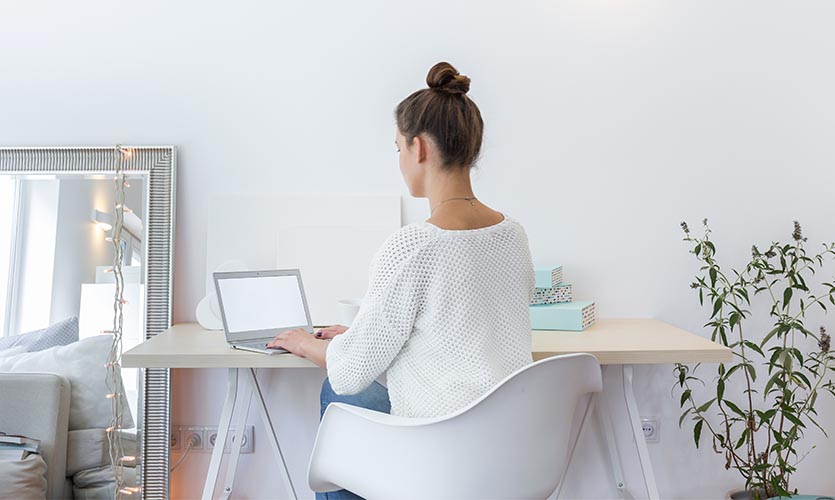Groundhog Day or liberation from daily routine?

Dr Ruth Odgen from the School of Psychology is a lead investigator on a new study into time under COVID-19 isolation. She shares her thoughts with us on the concept of time during isolation.
If you can't tell what day it is, you're not alone. The national lockdown has thrown our sense of time out of the window and it can be a really unnerving feeling.
Some people are feeling that time is slowing or moving at an odd pace, some feel disoriented and without a sense of the future and (according to Google) a spike in people using the search engine to ask "what day is it?" has scarcely raised an eyebrow.
Normally when calibrating time the most basic theory is the idea that we have a stopwatch in our head which helps guide us through our day, but is subject to race or slow according to our emotional state. Our sense of time is governed in part by the emotions that we experience and the actions we perform, which is why we say the time has flown after a fabulous night out or party (if only!).
It follows that the stay-at-home orders and social distancing mandates can prompt suspicion and purposelessness and create the sensation of time dragging by.
People tend to have heavily regimented days, with set work routines, meetings and social excursions that frame our hours and our days. This is all lost when we're stuck at home.
The precise factors that determine this 'sense of speed' are the subject of a new study I am leading into how people are now feeling and behaving under lockdown. Up to now, more than 700 people have taken part. Notable studies in the 1960s and 1970s looked at people who went into caves for months and saw time was significantly distorted.
In my own case I have three children at home with me — so what with home-schooling and keeping them entertained, I feel I never have a spare minute.
Equally, the experience of a furloughed worker will vary hugely from that of an NHS employee. That said, the feeling of being lost is very normal. With our structures gone, we cannot make many plans and we might feel our future has been taken away from us.
Instead we find ourselves with extra time to focus on the now. This gives us time to reflect on, or evaluate what we have in our lives. It allows us to consider what is making us happy or unhappy and do we want to make substantive changes when we get back to normal.
So when will this feeling of days getting mixed together likely end? It might happen once we're able to start making plans and return to our old routines. But there's a very real possibility that the 'new normal' may remain long after we've returned to our usual routines.
While we wait, there are ways in which we can regain a measure of control and routine. For instance, creating new routines — going for a socially-distanced walk, video-chatting with friends and family or going to food shop on specific days.
If you'd like to offer your views on how time feels under lockdown, you can take part in Ruth's research.


